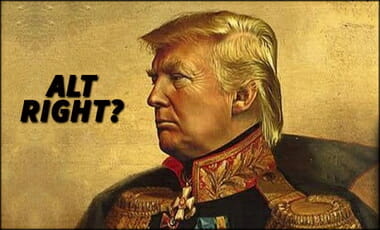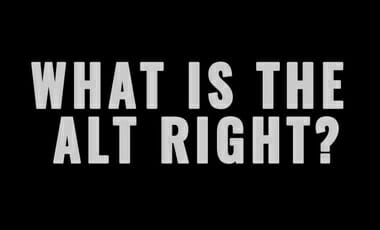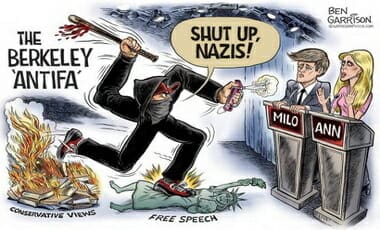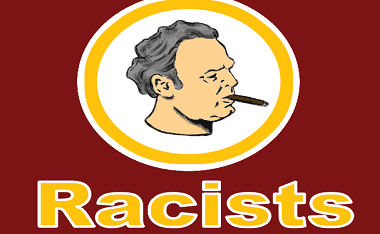It’s hard to think of Steve Bannon as a low-profile guy. He has garnered about as many headlines over the past week as Donald Trump—no small feat. He is the executive chairman of the hard-right Breitbart News, among the most aggressive voices online, its website an attack machine against Democrats and “establishment” conservatives. President-elect Trump chose Mr. Bannon this week as his chief strategist and senior counselor, a slot usually filed by someone eager to play a presidential surrogate on TV.
Yet Mr. Bannon—who joined the Trump campaign in mid-August to propel its thunderbolt victory—professes no interest in being the story. “It’s not important to be known,” he says in a telephone interview Thursday night, among his first public comments since the election. “It was Lao Tzu who said that with the best leaders, when the work is accomplished, the people will say ‘We have done this ourselves.’ That’s how I’ve led.”
Nor does he profess to care that Democrats and the media are portraying him as a “cloven-hoofed devil,” as he puts it. “I pride myself in doing things that matter. What mattered in the campaign was winning. We did. What matters now is pulling together the single best team we can to implement President-elect Trump’s vision.
He continues: “How can you take anything seriously from a media apparatus—paid the amount of money you people are paid—that systematically missed something that was so obvious, that missed Brexit, that missed the Trump revolution? You’d have thought they’d have learned their lesson on November 8.”
Slight pause. “They clearly haven’t.”
Here are a few things you’ve likely read about Steve Bannon this week: He’s a white supremacist, a bigot and anti-Semite. He’s a self-described Leninist who wants to “destroy the state.” He’s associated with the “alt-right,” a movement that, according to the New York Times, delights in “harassing Jews, Muslims and other vulnerable groups by spewing shocking insults on social media.”
You’ll have seen some of Breitbart’s more offensive headlines, which refer to “renegade” Jews and the “dangerous faggot tour.” You maybe heard that Breitbart is gearing up to be a Pravda-like state organ for the Trump administration.
Mr. Bannon is an aggressive political scrapper, unabashed in his views, but he says those views bear no relation to the media’s description. Over 70 minutes, he describes himself as a “conservative,” a “populist” and an “economic nationalist.” He’s a talker, but unexcitable, speaking in measured tones. A former naval officer, he thinks in military terms and likes to quote philosophers and generals. He’s contemptuous of the media, proud of Breitbart, protective of the “deplorables,” and—at least at the moment—eager to work with everyone from soon-to-be White House Chief of Staff Reince Priebus to House Speaker Paul Ryan.
At first Mr. Bannon insists that he has no interest in “wasting time” addressing the accusations against him. Yet he’s soon ticking off the reasons they are “just nonsense.”
Anti-Semitic? “Breitbart is the most pro-Israel site in the United States of America. I have Breitbart Jerusalem, which I have Aaron Klein run with about 10 reporters there. We’ve been leaders in stopping this BDS movement”—meaning boycott, divestment and sanctions—“in the United States; we’re a leader in the reporting of young Jewish students being harassed on American campuses; we’ve been a leader on reporting on the terrible plight of the Jews in Europe.” He adds that given his many Jewish partners and writers, “guys like Joel Pollak, these claims of anti-Semitism just aren’t serious. It’s a joke.”
He blames the attacks on a lazy media, noting for instance that the “renegade Jew” line wasn’t Breitbart’s. Conservative activist David Horowitz (also Jewish) has taken responsibility for writing the headline himself, in a piece about Weekly Standard editor Bill Kristol.
The Lenin anecdote came from an article in the Daily Beast by a writer who claimed to have spoken with Mr. Bannon in 2013: “So a guy I’ve never heard of in my life claims he met me at a party, and then claims I said something about Lenin, and this is taken as gospel truth, with nobody checking it.”
What about the charge of white supremacism? “I’m an economic nationalist. I am an America first guy. And I have admired nationalist movements throughout the world, have said repeatedly strong nations make great neighbors. I’ve also said repeatedly that the ethno-nationalist movement, prominent in Europe, will change over time. I’ve never been a supporter of ethno-nationalism.”
Mr. Bannon says the accusations miss that “the black working and middle class and the Hispanic working and middle class, just like whites, have been severely hurt by the policies of globalism.” He adds that he urged candidate Trump to reach out in his campaigning. “I was the one who said we are going to Flint, Michigan, we are going to black churches in Cleveland, because the thrust of this movement is that we are going to bring capitalism to the inner cities.”
Why does he think that leftists are so fixated on him? “They were ready to coronateHillary Clinton. That didn’t happen, and I’m one of the reasons why. So, by the way, I wear these attacks as an emblem of pride.”
Mr. Bannon is fiercely proud of the bomb-throwing Breitbart News, too. He credits it with “catching and understanding this populist movement” as far back as 2013, narrating the rise of the UK Independence Party in Britain, the exit movement for Scotland, and ultimately Brexit. “We were on to this change years before Donald Trump came on the scene,” he says.
He acknowledges that the site is “edgy” but insists it is “vibrant.” He offers his own definition of the alt-right movement and explains how he sees it fitting into Breitbart. “Our definition of the alt-right is younger people who are anti-globalists, very nationalist, terribly anti-establishment.”
But he says Breitbart is also a platform for “libertarians,” Zionists, “the conservative gay community,” “proponents of restrictions on gay marriage,” “economic nationalism” and “populism” and “the anti-establishment.” In other words, the site hosts many views. “We provide an outlet for 10 or 12 or 15 lines of thought—we set it up that way” and the alt-right is “a tiny part of that.” Yes, he concedes, the alt-right has “some racial and anti-Semitic overtones.” He makes clear he has zero tolerance for such views….
(Read it all at the WSJ)





